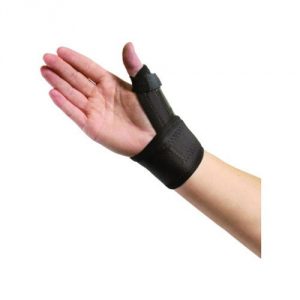Smartphone Injuries: When Technology Physically Hurts

Plantar fasciitis or fasciopathy
September 17, 2019
Finger injuries
September 29, 2019Smartphone Injuries: When Technology Physically Hurts

- arthritis
- chiropractor
- dry needling
- electro stimulation
- forearm
- icing
- inflammatory condition
- injury
- joint mobilization
- joint stability
- kinesiology
- manipulation
- movement
- myofascial release
- pain
- physiotherapy
- quervain syndrome
- rest
- rheumatoid arthritis
- stiffness motion
- strength
- swelling
- taping
- technology
- tenderness
- tendon
- texting thumb
- thumb
- thumb spica
- treatment
- wrist

At this day and age, we live in a world of technology where so much time is spent on our phones texting, scrolling through social media, swiping right and left but also at work performing repetitive keystrokes and mouse clicks on our computers.
Little do we know is that those recurrent movements can cause the tendons to rub against each other leading to repetitive stress injuries such as de Quervain syndrome.
De Quervain syndrome, also commonly referred to, as texting thumb syndrome or gamer’s thumb believe it or not, is a condition in which the tendons of the thumb become inflamed and cause pain.
This can be caused by several reasons:
- Repetitive thumb movements such as texting, gaming, or using the mouse
- Repetitive lifting i.e. lifting children
- Prolonged positioning of thumb under high stress i.e. hook grip on the bar during weight lifting
- A direct blow to the thumb
- Other hobbies that require repetitive thumb movements such as gardening or racket sports or bowling
- Overuse or degenerative changes or inflammatory conditions such as rheumatoid arthritis
The symptoms you may notice include:
- Pain directly over the two tendons at the base of the thumb
- Pain in the wrist
- Swelling and tenderness at the base of the thumb and along the tendons
- Painful limited thumb movements
- Painful grip or carrying of objects
- Pain may radiate up to the forearm
Good news is this condition is highly treatable. Starting of with icing, resting and avoiding aggravating factors can already bring so much relief.
Additionally, physiotherapy can be extremely beneficial in reducing pain, swelling, stiffness, increasing range of motion and wrist/thumb strength and stability to protect and minimize stresses on the joints. This can be done through soft tissue myofascial release, joint mobilization and manipulations, dry needling with electro-stimulation, and strengthening muscles of the thumb, wrists and forearm to increase joint stability. Wearing a splint known as thumb spica or even taping is also very helping at protecting the inflamed area, reducing stress on the tendons and minimizing pain.
Most important part of managing this condition, is preventative care which is achieved through modification of activities such as avoiding repetitive movements, taking breaks while gaming and texting, and stretching and mobilizing the wrists and thumbs every now and then.
Most smartphones tell you how much time you’ve spent on your phone, so if it is too much, which lets face it, it probably is for most of us, then cutting screen time can reduce the risk of overuse and stress injuries, or even try switching to the other hand when texting or taking selfies… May develop the non-dominant side of your brain.
Nermine F.
[ad_2]



